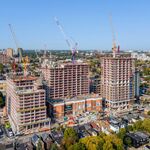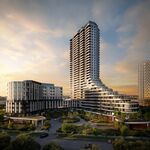It does matter because simply clutching a knife but being no position to use it against anyone is not enough justification to essentially apply the ultimate penalty.
Give us just one example where a knife wielding suspect was shot, fell to the ground and subsequently, from his position on the ground, managed to physically harm someone stand 20 feet away.
The problem isn't the 20 feet. That distance cannot be maintained indefinitely. Someone has to approach him and get him into custody. If he is still armed, he is still considered a deadly threat, as wounded people are still capable of using a weapon.
The iffy question here is whether the 6 second delay between the first 3 shots and the last 6 shots constitutes 2 completely different shooting incidents. And if so, did the second shooting incident meet the requirement for the use of lethal force. Determining this will not rely on hind sight, as most of the public is doing, but through careful consideration of the mindset, interpretation and articulation of the threat by the contact officer and the other officers on site at the time.
Even after all 9 shots are fired, the approaching officer with the taser (I assume the supervising officer since they are the ones who carry tasers) decides to tase him. This is interesting. You can hear them still saying drop the knife. If he still has the knife, and there is no way to tell how incapacitated he is (just because you are laying there doesn't mean you can't cause harm if approached at close distance), the officer could consider this still a case of using lethal force to take him into custody, as he could easily still be considered a deadly threat. The point I am making is, that it's possible this officer could have shot him, rather than tase him, as the use of a lower level force option, like the taser, in a deadly force encounter can be a dangerous proposition.
I'll let the SIU and our legal system ultimately make that determination.
You're being very selective about when you choose to let those who might have a clue make determinations.
But I see no reason at this point to disregard the possibility that the officer acted in a manner inconstant with the public's expectations.
Neither do I. But which expectations are you defending?
And if you don't think that's the case, then tell me when was the last time you saw thousands of people protesting in the streets of Toronto after a police shooting.
Hey...I live in a city that voted in Rob Ford for its mayor...so go ahead and ask me what I think of the opinions of the uninformed public. Those protesting probably fall into three categories.....grieving family and friends, those who just have hostility towards law enforcement in general, and people acting on emotion and uninformed opinion.




